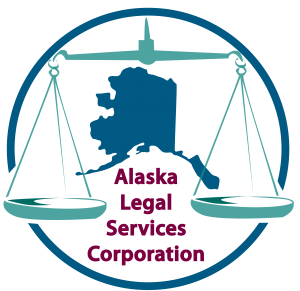Understanding fair lending and the law that governs it is important for everyone. Knowing how your rights are protected under the federal Fair Housing Act and other laws can help you recognize lending discrimination.
What is fair lending?
Fair lending prohibits lenders from considering your race, color, national origin, religion, sex, familial status, or disability when applying for residential mortgage loans. Fair lending guarantees the same lending opportunities to everyone.
Are there laws that protect my fair lending rights?
Yes. The federal Fair Housing Act protects your fair lending rights. The Office of Fair Housing and Equal Opportunity enforces the federal Fair Housing Act. For more information about the Fair Housing Act, please visit www.hud.gov/fairhousing.
There are other federal laws, including the Equal Credit Opportunities Act, that protect your fair lending rights (but are not enforced by HUD). The Equal Credit Opportunity Act prohibits credit discrimination on the basis of race, color, religion, national origin, sex, marital status, age, or because you get public assistance. For more information on the Equal Credit Opportunity Act, please visit http://www.consumerfinance.gov/fair-lending/.
In addition to federal laws, there are also state and local laws that prohibit lending discrimination. Here in Alaska,
- the Alaska Human Rights Law prohibits discrimination in financing and credit on the basis of sex, physical or mental disability, marital status, changes in marital status, pregnancy, parenthood, race, religion, color, or national origin;
- the Anchorage Municipal Code, Title 5, prohibits discrimination in the provision of housing-related credit, financing, and insurance because of race, color, sex, sexual orientation, gender identity, religion, national origin, marital status, age, or physical or mental disability;
- the Juneau Municipal Code, Title 41, prohibits discrimination in the provision of housing-related credit, financing, and insurance on the basis of race, color, age, religion, sex, familial status, disability, sexual orientation, gender identity, gender expression, or national origin.
If I am not from the United States, does the federal Fair Housing Act protect me?
Yes, whether you are a U.S. citizen, registered alien (a “green card” holder), or an undocumented resident of the U.S., you are protected by the federal Fair Housing Act.
How can the Fair Housing Act protect me when I purchase a home?
The federal Fair Housing Act makes it unlawful to discriminate in the sale, rental, or financing of homes because of race, color, national origin, religion, sex, familial status, or disability.
What are some examples of discriminatory lending practices?
A lender commits discriminatory lending practices when he or she acts in one or more of the following ways:
- Refuses to make a mortgage loan on the basis of race, color, national origin, religion, sex, familial status, or disability;
- Refuses to provide information regarding mortgage loans on the basis of race, color, national origin, religion, sex, familial status, or disability;
- Imposes different terms or conditions on a mortgage loan, such as different interest rates, points, or fees on the basis of race, color, national origin, religion, sex, familial status, or disability;
- Discriminates in appraising property on the basis of race, color, national origin, religion, sex, familial status, or disability;
- Steers an applicant toward a bad mortgage loan product on the basis of race, color, national origin, religion, sex, familial status, or disability;
- Provides inferior servicing of a mortgage loan on the basis of race, color, national origin, religion, sex, familial status, or disability.
Can my bank officer commit lending discrimination?
Yes. Any lender, real estate and mortgage broker, appraiser, loan servicer, or title company can commit lending discrimination in any phase of the mortgage loan process. You should report any person, company, or entity attempting to violate your fair lending rights immediately to Alaska Legal Services, HUD, or another appropriate agency.
When does lending discrimination occur?
Whether you are purchasing or refinancing a home, lending discrimination can occur at any stage of the lending process. For example, if a lender refuses to make a mortgage loan because of your race or ethnicity, or if a lender charges excessive fees to refinance your current mortgage loan based on your race or ethnicity, the lender is in violation of the federal Fair Housing Act.
What are some of the warning signs of lending discrimination?
The signs of lending discrimination may be blatant or subtle. They can occur in the marketing of mortgage loan products, mortgage loan transactions, terms and conditions of the loan, in the appraisal of a home, and in loan servicing.
In the marketing of mortgage loan products, be aware of:
- Aggressive solicitations of adverse terms of credit to targeted minority neighborhoods, racial or ethnic groups, and communities; or
- Racial steering to high cost lenders.
In the mortgage loan transaction, be aware of:
- Requiring that women, but not men, provide a co-signer for a loan.
In the terms and conditions of the mortgage loan that are more often imposed upon borrowers of a certain race or nationality or upon women, be aware of:
- Unnecessary closing costs;
- Inflated appraisal costs;
- Inflated broker or lender fees;
- Unnecessary recording fees;
- Excessive prepayment penalties; or
- Changing mortgage loan terms at closing without the consent of the borrower.
In the appraisal of a home, be aware of properties that are undervalued because of the race or nationality of either the borrower or the other residents in the surrounding neighborhood.
In the servicing of the mortgage loan, be aware of:
- Collection or foreclosure practices applied more harshly because of the race or nationality of either the borrower or the other residents in the surrounding neighborhood.
For more information on mortgage loan choices and terms, click here.
For more information on how to avoid becoming a victim on lending discrimination, click here.
